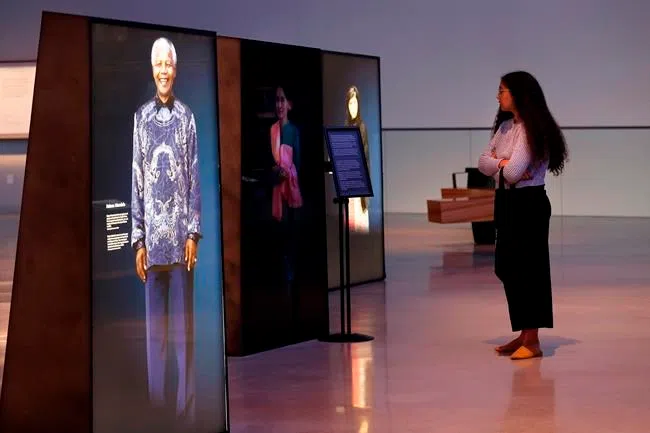
Myanmar leader removed from display at Canadian Museum for Human Rights
WINNIPEG — Myanmar’s leader Aung San Suu Kyi will be removed from a display at the Canadian Museum for Human Rights over the humanitarian crisis facing her country’s Rohingya Muslims.
The museum in Winnipeg has announced it will remove the Nobel Peace Prize winner from a timeline of human rights defenders and milestones.
But a large image of the Myanmar leader will remain on display in the gallery of honorary Canadians. The lights around the image have been dimmed and a sign has been placed in front explaining the current humanitarian crisis.
“She’s not a human rights icon. Why is she there? She is an absolute oppressor, there is no question about it,” Anwar Arkani, president of the Rohingya Association of Canada said Wednesday.
